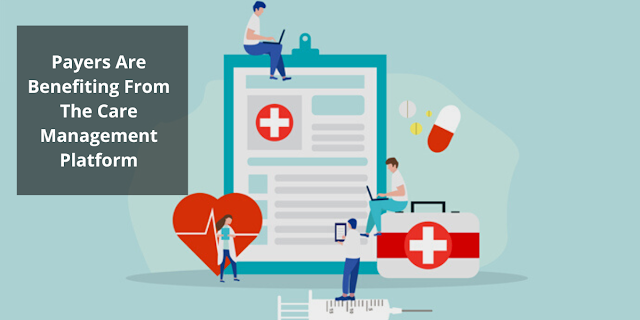Payers Are Benefiting From The Care Management Platform
Care Management Platform is a booster to the clinical information sharing and management. It is a kind of operating system that helps in filling the care gaps, enhancing the degree of care service patients receive and cutting healthcare expenses, along with patients and healthcare professionals associated risks.
As
healthcare practitioners consider the financial and patient-health benefits of
adopting Medicare programs, they are confronted with a fundamental dilemma and
one questing is ringing in the back of their mind.
Is
Care Management for Payers truly effective in managing these programs?
While
some healthcare practitioners believe that they do not require a Care
Management Platform to run their operations, it is highly suggested that
they do so in order to make management faster and more efficient.
It is More Effective to Use a Care Management Solution
Health
records aren't designed to administer value-based coordinated care like Chronic
Care Management, Remote Healthcare Management, Community Health
Incorporation, and other critical Medicare value-based services.
The
healthcare industry's experts have seen that using an integrative Care
Management Solution to handle these initiatives has resulted in significant
benefits for the practitioners in terms of improving health outcomes for
patients and maximizing compensation. The results these healthcare
practitioners gained wouldn’t be possible by just using an old health records
system.
Care Management for Payers
Care
Management, albeit a decades-old idea, has regained prominence in recent years
as healthcare entrepreneurs have used the advantage of data collection,
analytical ability, and healthcare monitoring technologies to classify
population of patients and connect them with the best and cheapest available
treatment protocol.
To
maximize benefits, several payers are allocating a certain amount of
administrative spending to Care Management. The initiatives based on Care
Management for Payers can target a variety of possible healthcare
operational and financial sources of value.
Due
to two key issues, many payers obtain less value than the projected range. To
begin with, many care management solutions do not focus on generating value
while a participant is still registered in a health plan.
Numerous
payers, for instance, have health plans that may only be valuable if they
prevent a medical incident years after the participant has left the health
plan. Other initiatives, such as intricate case management and care shifts, may
provide greater beneficial results.
Secondly,
Care Management for Payers is frequently focused on preventing health
crises. Other elements of value, such as assisting members in selecting utmost
therapeutically appropriate location of treatment or the greatest possible and
perhaps most effective practitioner, are ignored.




Comments
Post a Comment